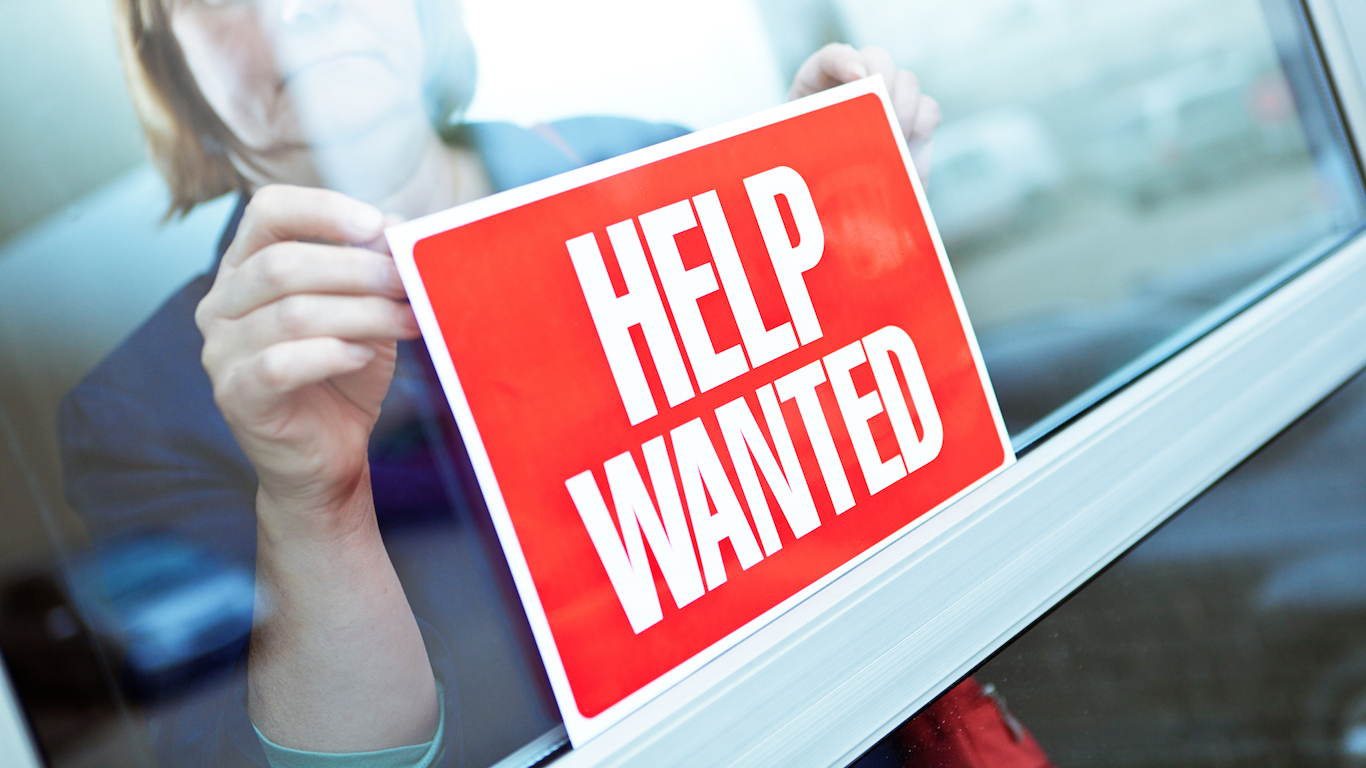
The US Labor Department reported Nonfarm payrolls grew by 187,000 in July, falling short of the market estimates of 200,000. Meanwhile, the unemployment rate also came in lower than anticipated, at 3.5%, while economists projected 3.6%.
Unemployment Rate Was 3.5% in July, Lower than Expected
The US economy added 187,000 jobs in July, significantly less than the Dow Jones estimate of 200,000, according to the latest nonfarm payrolls report by the Labor Department. However, even though the figures came lower than expected, the print represented a slight gain from June’s revised job additions of 185,000.
Further, the report showed that the unemployment rate stood at 3.5% last month, compared to the consensus estimates of 3.6%. The July rate was just above the lowest level since 1969.
Average hourly earnings increased by 0.4% in July, beating the estimated 0.3%. On an annual basis, earnings rose by 4.4%, also above expectations of 4.2%.
The labor force participation rate, another closely monitored metric, stood at 62.6% for the fifth month. Meanwhile, a broader unemployment rate considering discouraged workers and those working part-time jobs slipped to 6.7%, down 0.2% month-on-month.
The stock market welcomed the new jobs report, with the S&P 500 and Dow Jones Industrial Average (DJIA) rising 0.6% and 0.4% at the market open, respectively.
US Soft Landing More Likely as Economic Growth Slows
The July nonfarm payrolls print marks only the second straight month where US jobs grew less than 200,000. The initial June report showed that the US economy added 209,000 jobs that month, but the figures were later revised to 185,000.
The US Federal Reserve has been hiking interest rates aggressively since March 2022 to rein in record-high inflation and slow the US economy’s growth rate. However, the country’s labor market remained red hot until signs of cooling finally appeared last month.
Over the past several months, Robust job reports raised concerns that the Fed could adopt an ultra-aggressive approach and potentially lift interest rates so high that it could cause a recession. However, the slowing economic growth will be welcomed by the US policymakers and make the task of the so-called “soft landing” easier to pull off.
A soft landing is an economic scenario where a nation’s economy makes a smooth shift from a period of rapid expansion to a more sustainable level of growth, thereby avoiding recession risks.
This article originally appeared on The Tokenist
The Average American Has No Idea How Much Money You Can Make Today (Sponsor)
The last few years made people forget how much banks and CD’s can pay. Meanwhile, interest rates have spiked and many can afford to pay you much more, but most are keeping yields low and hoping you won’t notice.
But there is good news. To win qualified customers, some accounts are paying almost 10x the national average! That’s an incredible way to keep your money safe and earn more at the same time. Our top pick for high yield savings accounts includes other benefits as well. You can earn up to 3.80% with a Checking & Savings Account today Sign up and get up to $300 with direct deposit. No account fees. FDIC Insured.
Click here to see how much more you could be earning on your savings today. It takes just a few minutes to open an account to make your money work for you.
Our top pick for high yield savings accounts includes other benefits as well. You can earn up to 4.00% with a Checking & Savings Account from Sofi. Sign up and get up to $300 with direct deposit. No account fees. FDIC Insured.
Thank you for reading! Have some feedback for us?
Contact the 24/7 Wall St. editorial team.


